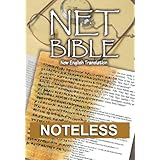Yesterday, while we were on the way to Church, our eleven year old interrupted us with a "you've got to read this." We had her read it to us. She had just finished Matthew Chapter 6 and had to share it.
Of course they had read it a couple of weeks ago at Church. Not the same impact. She's smart (three standard deviations above her class's norm on her latest assessment scores), but two weeks ago it was the King James (which I love for its poetic flavor). Sunday it was a modern translation.
NET Bible Noteless (on her itouch)
She kept reading, engrossed, all through Sacrament meeting.
I've seriously rethought my feelings on the King James based on that experience. I love the flavor and the poetry, but to see her just enraptured in the scriptures, that was a significant moment for me.

1 comment:
I had a similar experience more years ago than I care to admit when I was a teenager attending Protestant summer youth camp. I grew up in an evangelical church at a time when the King James Version was still in common use (evangelicals didn't trust the "liberal" Revised Standard Version of the time). At that camp, I had some extra spending money and, being a sucker for books, I bought a paperback New English Bible New Testament.
I immediately fell in love with it. It was like reading the Bible for the first time -- probably because it was. It spoke to me incredibly and launched a lifelong interest in the Scriptures that continues long after I became LDS.
Being forced to use the KJV has been a huge step backwards (and I don't use it, basically, except at church, and even then I use a version that has the KJV on one page and the New International Version (not my favorite modern translation) on the opposite page).
When teaching classes, I have found that the KJV is often an impediment to Mormons, especially teens, learning the Bible. Furthermore, it's not a translation that most people will simply sit down and read for pleasure (and the versification doesn't help).
As far as I can tell, official statements re doctrine notwithstanding, the main reason we continue using the KJV is because that's the translation Joseph Smith used and that's the translation that most of our nonbiblical scriptures are based on, with a secondary reason that many in the church simply don't trust the modern translations.
I would welcome a move toward extensive use of a modern translation (or translations) in official church settings. There are different ways that this could be done, not all of them involving a jettison of the KJV. I see no downside to doing this; I'm not aware of a single instance where a good modern translation interprets a verse in a way that isn't faithful to the Greek or Hebrew and violates LDS doctrine in a way that the KJV does not.
In non-English-speaking countries, modern translations are common in the LDS church (the church itself made one in Spanish and, except for the versification, it's quite good). It's time we catch up here with what's being done in much of the rest of the world.
Post a Comment